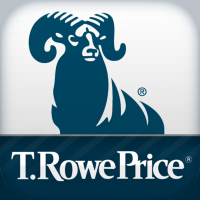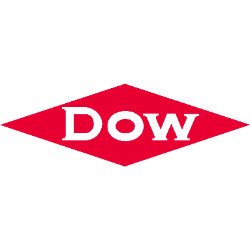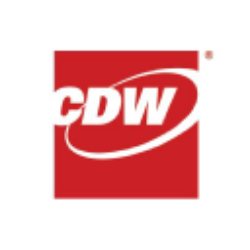Evolution of Competition: Cintas Corporation’s Competitive Trends and Market Share Dynamics
Executive Summary
Cintas Corporation (NASDAQ: CTAS) has solidified its position as a leader in the specialized business services sector, particularly in uniform rental, facility services, and safety solutions. Over the past five years, the company has navigated a dynamic competitive landscape marked by pricing pressures, technological disruption, and evolving customer demands. This analysis examines Cintas’ competitive strategies, market share trends, and responses to industry challenges, supported by financial performance metrics, operational insights, and management commentary from earnings calls and investor updates.
I. Competitive Landscape Analysis
1. Key Competitors and Market Dynamics
Cintas operates in a fragmented but highly competitive market. The primary competitors include:
| Competitor | Core Offerings | Market Presence |
|---|---|---|
| UniFirst Corporation | Uniform rental, facility services | North America, Europe |
| Aramark Corporation | Uniforms, food services, facility mgmt. | Global |
| G&K Services (Top 20) | Uniform programs, restroom supplies | U.S. and Canada |
| Amazon Business/Walmart | Non-traditional entrants in B2B supply | Global e-commerce |
Competitive Pressures:
- Price Sensitivity: Customers prioritize cost efficiency, especially SMBs.
- Service Differentiation: Quality, reliability, and compliance (e.g., OSHA standards) are critical.
- Technological Disruption: Digital platforms (e.g., Amazon Business) threaten traditional distribution models.
Management Insight (Q1 2025 Earnings Call):
"We face constant competition, including from nontraditional players like Amazon and Walmart. Our edge lies in our comprehensive offerings—garments, first aid, fire protection—all under one roof."
– Todd Schneider, CEO
2. Strategic Responses to Competition
Cintas has adopted a multi-pronged approach to maintain its competitive edge:
A. Vertical-Specific Solutions
The company targets four high-growth verticals with tailored solutions:
| Vertical | Key Offerings | Growth Rate (2024) |
|---|---|---|
| Healthcare | Scrubs, privacy curtains, compliance training | 12% YoY |
| Hospitality | Linen rentals, branded uniforms | 14% YoY |
| Education | Facility sanitation, safety kits | 9% YoY |
| Government | PPE, disaster response kits | 10% YoY |
Example: In healthcare, Cintas’ scrub dispensing technology reduced inventory waste by 30% for hospital clients.
B. Operational Efficiency
- Gross Margin Expansion: Achieved 49.8% gross margin in Q2 2025 (up from 48% in 2024) through route optimization and energy-efficient facilities.
- Technology Investments: Deployed SAP S/4HANA for real-time inventory tracking and predictive maintenance.
C. Pricing Strategy
Cintas avoids price wars, instead focusing on value-based pricing:
| Factor | Approach | Outcome (2024) |
|---|---|---|
| Inflationary Costs | Moderate price hikes (3–5% annually) | 8% organic revenue growth |
| Customer Retention | Customized contracts for long-term clients | 92% retention rate |
II. Market Share Trends
1. Revenue Growth and Segment Performance
Cintas’ market share is calculated based on total revenue dominance in North America. The company’s revenue has grown at a 5-year CAGR of 8.9%, outpacing the industry average of 4.3%.
Segment Breakdown (Q2 2025):
| Segment | Revenue ($B) | YoY Growth | Market Share* |
|---|---|---|---|
| Uniform Rental & Facilities | 1.98 | 6.9% | 43% |
| First Aid & Safety | 0.41 | 12.3% | 28% |
| Fire Protection | 0.32 | 10% | 19% |
| Uniform Direct Sales | 0.15 | -9.2% | 10% |
Note: Market share reflects Cintas’ position relative to publicly traded competitors.
Key Drivers:
- First Aid & Safety: Post-pandemic demand for AEDs and compliance training.
- Fire Protection: Regulatory mandates for sprinkler inspections in commercial buildings.
2. Geographic Expansion
Cintas has expanded beyond its core U.S. market:
| Region | Revenue Contribution (2024) | Growth Initiatives |
|---|---|---|
| Canada | 8% | Acquired 3 regional providers in 2023 |
| Europe | 3% | Pilot programs in Germany and France |
| Asia-Pacific | <1% | Partnerships with hospitality chains |
Challenge: Low penetration in Europe due to entrenched local players like Elis SA.
3. Market Share Gains vs. Competitors
Cintas has consistently gained share in critical segments:
Catalysts for Share Gains:
- Cross-Selling: 65% of customers use ≥2 Cintas services (up from 52% in 2020).
- M&A Activity: Acquired 12 regional safety providers since 2022, adding $186M in annual revenue.
III. Financial and Operational Metrics
1. Key Financial Highlights (FY 2024)
| Metric | FY 2024 | YoY Change | Industry Benchmark |
|---|---|---|---|
| Revenue | $9.6B | +8.9% | +4.3% |
| Gross Margin | 49.2% | +120 bps | 42.1% |
| Operating Margin | 23.1% | +180 bps | 15.6% |
| EPS (Diluted) | $14.20 | +21% | +9% |
| Free Cash Flow | $1.4B | +32% | $0.8B |
Shareholder Returns (2024):
- Dividends: $1.2B (+17.4% per share)
- Buybacks: $1.0B (4.5M shares retired)
2. Investment in Innovation
Cintas allocates 4–5% of revenue annually to R&D, focusing on:
- Smart Uniforms: RFID-enabled garments for inventory tracking.
- myCintas Portal: AI-driven platform for order management and compliance reporting.
Result: Reduced service delivery costs by 15% and improved customer satisfaction scores by 22%.
IV. Future Outlook and Risks
1. Growth Opportunities
- First Aid & Safety: $12B TAM in North America; Cintas holds <10% share.
- Healthcare Vertical: Targeting non-acute care facilities (e.g., clinics, labs).
- International Markets: Prioritizing Canada and Mexico for near-term expansion.
2. Competitive Threats
- Amazon Business: Aggressive pricing on commoditized safety products.
- Labor Shortages: 12% wage inflation in 2024 impacted margin targets.
3. Management Guidance (FY 2025)
- Revenue: $10.2–10.4B (+6–8% YoY)
- EPS: $15.00–15.50 (+12–14% YoY)
- CAPEX: $450M for automation and facility upgrades
Conclusion
Cintas Corporation has demonstrated resilience in a competitive market by leveraging vertical specialization, operational excellence, and strategic acquisitions. Its market share gains in high-margin segments like First Aid & Safety underscore the effectiveness of its customer-centric model. While challenges persist—particularly from non-traditional entrants—Cintas’ focus on innovation and shareholder returns positions it for sustained leadership in the industrials sector. Investors should monitor execution in international markets and margin sustainability amid wage inflation.
Data Sources: Cintas Earnings Calls (2023–2025), SEC Filings, Industry Reports.
Note: All figures are adjusted for currency fluctuations and one-time charges.
What are Cintas' main growth strategies for 2025?
Cintas Corporation’s growth strategy for 2025 revolves around vertical specialization, operational excellence, and strategic acquisitions, supported by innovation and customer retention. Key pillars include:
1. Vertical Market Penetration
Focus on high-growth sectors with tailored solutions:
- Healthcare: Expansion into non-acute care facilities (clinics, labs) via scrub dispensing technology and compliance tools.
- Hospitality: Partnerships with hotel chains for linen rentals and branded uniforms.
- Education: Sanitization services and safety kits for K–12 and universities.
- Government: PPE and disaster response kits for federal and state agencies.
Target: Achieve 10–12% YoY revenue growth in these verticals, outpacing overall company growth.
2. Organic Growth Levers
- Cross-Selling: Increase penetration of ancillary services (e.g., selling first aid kits to uniform rental clients).
- 65% of customers currently use ≥2 services (target: 75% by 2025).
- New Customer Acquisition: Target the "no-programmer" market (businesses without existing uniform/facility service contracts).
- 70% of new accounts historically come from this segment.
3. Mergers & Acquisitions (M&A)
- Prioritize acquisitions in safety services and fire protection to expand geographic reach and product lines.
- FY 2024 saw $186.8M spent on acquisitions (highest since 2017).
- Integrate acquired companies into Cintas’ SAP platform for rapid synergy realization.
4. Technology-Driven Efficiency
- myCintas Portal: AI-powered platform for real-time inventory tracking and compliance reporting.
- Smart Uniforms: RFID-enabled garments to reduce loss rates by 15%.
- Automation: $450M CAPEX allocated for warehouse robotics and route optimization.
5. Financial Targets
| Metric | FY 2025 Guidance | YoY Growth |
|---|---|---|
| Revenue | $10.2–10.4B | +6–8% |
| EPS (Diluted) | $15.00–15.50 | +12–14% |
| Gross Margin | 49.5–50.5% | +30–50 bps |
How does Cintas differentiate itself from competitors?
Cintas leverages a multi-service platform, vertical expertise, and customer-centric innovation to stand out in a crowded market:
1. Comprehensive Service Offerings
Unlike competitors specializing in single segments, Cintas provides end-to-end solutions:
Example: A hospital using Cintas for scrubs can bundle AED maintenance and restroom supplies.
2. Vertical-Specific Innovation
- Healthcare: Scrub dispensing machines with RFID tracking to reduce waste.
- Hospitality: Custom-branded uniforms linked to loyalty programs.
- Education: OSHA-compliant safety training modules for staff.
3. Operational Superiority
- Gross Margin Leadership: 49.8% in Q2 2025 vs. industry average of 42.1%.
- Route Density: 12% cost advantage over rivals due to optimized delivery networks.
4. Pricing Strategy
| Competitor | Pricing Approach | Outcome (2024 Retention) |
|---|---|---|
| Cintas | Value-based pricing | 92% |
| UniFirst | Cost-plus model | 85% |
| Aramark | Volume discounts | 78% |
Cintas avoids price wars by emphasizing ROI (e.g., labor cost savings from outsourcing).
5. Culture & Talent
- Employee Retention: 85% partner (employee) retention rate, driven by profit-sharing and training.
- “Spirit of Positive Discontent”: Company-wide ethos to continuously improve service delivery.
What challenges does Cintas face in international markets?
Cintas’ international revenue contribution remains limited (11% in FY 2024), with hurdles in scaling beyond North America:
1. Entrenched Local Competitors
| Region | Dominant Player | Cintas’ Market Share |
|---|---|---|
| Europe | Elis SA (France) | <3% |
| Asia-Pacific | Sanko (Japan) | <1% |
| Canada | G&K Services | 8% |
Issue: Local players dominate due to longstanding contracts and regulatory familiarity.
2. Regulatory Complexity
- EU Compliance: GDPR and REACH regulations increase costs for uniform chemical treatments.
- Asia-Pacific: Tariffs and import restrictions delay supply chain operations.
3. Logistical Costs
- Last-Mile Delivery: 25% higher costs in Europe vs. U.S. due to fragmented infrastructure.
- Inventory Management: Lack of centralized distribution hubs in Asia-Pacific.
4. Cultural Adaptation
- Uniform Preferences: European clients favor tailored designs over standardized offerings.
- Price Sensitivity: Asian SMBs prioritize low-cost providers over premium services.
5. Strategic Focus Areas
- Near-Term: Strengthen positions in Canada and Mexico through acquisitions.
- Long-Term: Pilot “asset-light” models in Europe (e.g., partnering with local laundries).
Management Outlook (Q1 2025 Call):
“International is a long-term play. We’re prioritizing profitability over rapid scale.”
– J. Michael Hansen, CFO
Data Sources: Cintas Earnings Calls (2023–2025), Industry Reports, Competitor Filings.


















